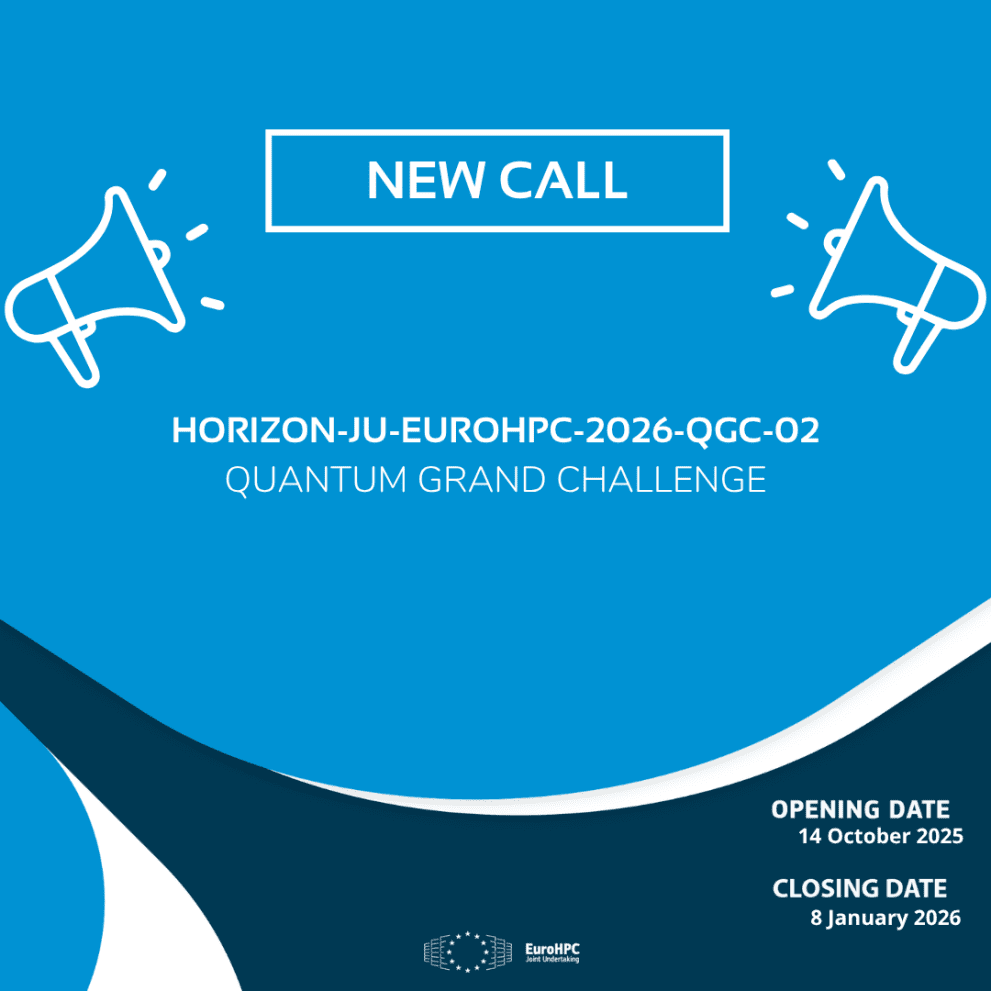The EuroHPC JU invites European quantum computing startups to develop market-ready solutions through a two-phase grant program, aiming for integrated hardware, software systems by 2026. Phase 1 grants, totaling EUR 4 million, support the development of technical roadmaps and prototypes over four months, with promising projects advancing to long-term financing under Phase 2. This initiative aims to strengthen Europe’s technological sovereignty and foster collaboration between innovators,
EuroHPC JU’s 2026 Quantum Grand Challenge Phases
The EuroHPC JU’s 2026 Quantum Grand Challenge has been launched with a dual-phase strategy aimed at fostering European quantum computing innovation. In Phase 1, the HORIZON-JU-EUROHPC-2026-QGC-02 call invites European startups to develop integrated hardware, software solutions by receiving financial support over four months. These projects must deliver tangible outputs and demonstrate feasibility towards market-ready applications. This phase targets enhancing technological readiness through technical and financial roadmaps, as well as proofs of principle or preliminary prototypes.
Building on this progress, Phase 2 will see the most promising projects secure long-term financing through loans from the European Investment Bank (EIB) under the InvestEU initiative. The EIB Advisory services will assist in evaluating financial viability and preparing for potential private investment. Successful candidates will undergo full due diligence before receiving InvestEU financing. Priority will be given to integrating quantum solutions into European supercomputing centers, ensuring interoperability within the EU’s HPC infrastructure.
The Quantum Grand Challenge represents a pivotal step towards enhancing Europe’s technological sovereignty, innovative capabilities, and competitiveness in the field of quantum computing. By facilitating collaboration between innovators, financial institutions, and end-users, it aims to drive progress towards market-ready applications that could transform various sectors.
Integrating Quantum Solutions into European Supercomputing Centers
The EuroHPC JU is set to revolutionize quantum computing in Europe by fostering collaboration between quantum innovators and European supercomputing centers. According to the company announced, “Priority will be given to start-ups integrating their quantum solutions into European supercomputing centres, ensuring interoperability within the European Union’s HPC infrastructure.” This initiative aims to enhance Europe’s technological sovereignty and competitive edge in a rapidly evolving field.
Meanwhile, building on this vision, the EuroHPC JU plans to implement two phases for selecting and funding promising quantum computing start-ups. Phase 1, funded by Horizon Europe, will provide financial support over four months to develop technical roadmaps and prototypes. Successful projects from Phase 1 will then move on to Phase 2, where they can apply for long-term financing through the European Investment Bank (EIB) under the InvestEU initiative. This two-phase approach ensures that only the most viable and innovative projects receive sustained support.
This collaboration between quantum innovators and financial institutions will drive Europe toward market-ready, industrial applications of quantum computing. By integrating these solutions into existing supercomputing centers, researchers and businesses alike can leverage advanced computational capabilities to solve complex problems in areas such as drug discovery, climate modeling, and artificial intelligence. The EuroHPC JU’s commitment to this initiative underscores its dedication to advancing European technological leadership and ensuring Europe remains a global leader in quantum computing.
This development could enable significant advancements in computational power and data processing capabilities, potentially revolutionizing industries such as drug discovery, climate modeling, and artificial intelligence. Within five years, the technology may reduce reliance on classical supercomputers for complex simulations, leading to substantial cost savings and accelerated innovation across Europe. By 2026, researchers expect these market-ready solutions

